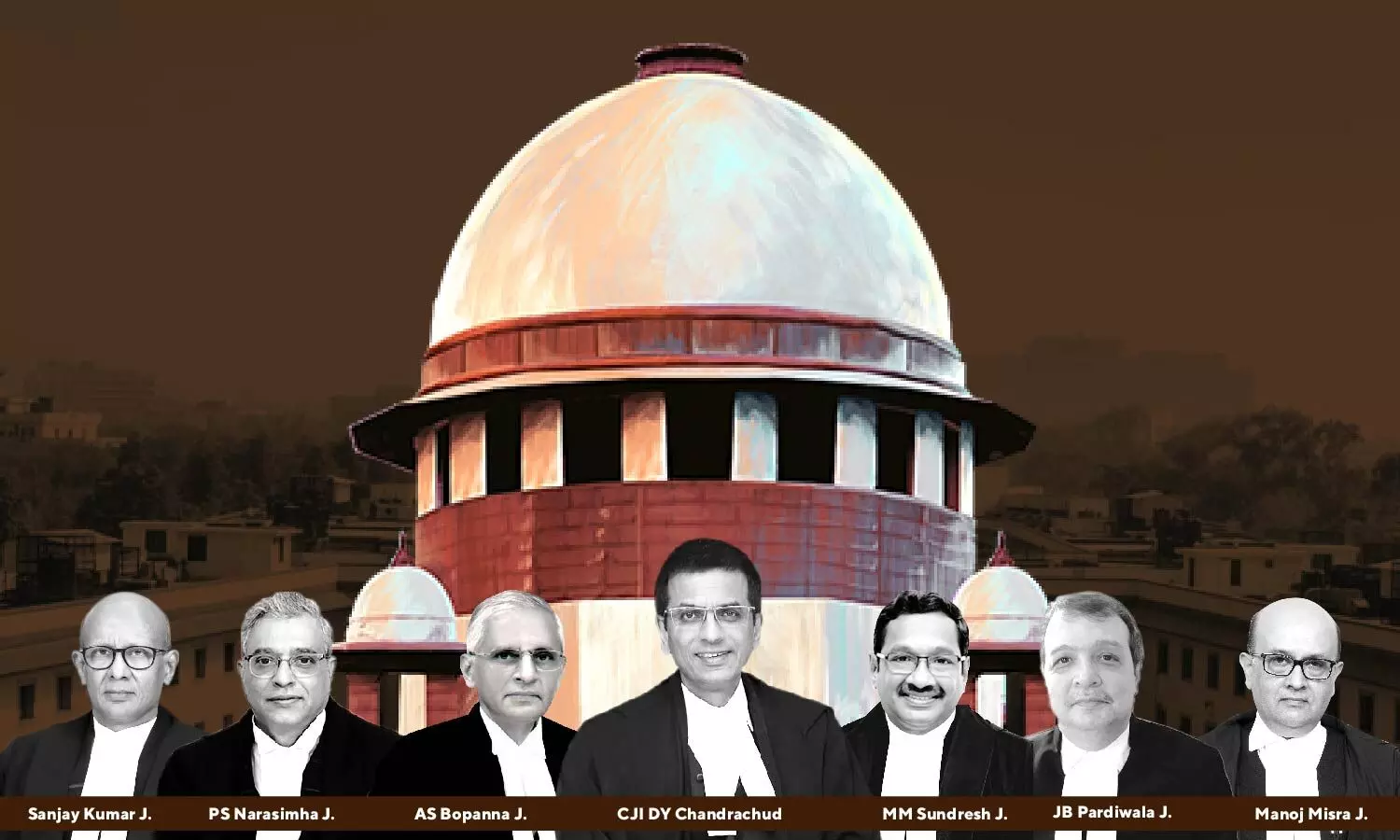
Parliamentary Privileges Not Restricted To Only Law Making; Extends To Other Powers & Responsibilities Of MPs/MLAs: Supreme Court
 |
|While overruling a five-Judge Bench judgment in PV Narasimha Rao v. State (CBI/SPE) (1998) 4 SCC 626, the Supreme Court has observed that elections in State Legislatures to the Rajya Sabha though not a ‘law-making’ process fall within the remit of Article 194(2) of the Constitution of India.
The court observed that "parliamentary privilege” is not restricted to only law-making on the floor of the House but extends to other powers and responsibilities of elected members, which take place in the Legislature or Parliament, even when the House is not sitting.
A Bench comprising Chief Justice of India DY Chandrachud, Justice AS Bopanna, Justice M.M. Sundresh, Justice PS Narasimha, Justice J.B. Pardiwala, Justice Sanjay Kumar and Justice Manoj Misra pronounced the judgment.
After reading the text of Article 194(2) of the Constitution of India, placing any restriction on such a vote being protected by parliamentary privilege, the bench in the judgment observed, “Distinct from the marginal note, in the text of the provision, there is a conscious use of the term ‘Legislature’ instead of the ‘House of Legislature’ at appropriate places. It is evident from the drafting of the provision that the two terms have not been used interchangeably. The first limb of Article 194(2) pertains to ‘anything said or any vote given by him in the Legislature or any committee thereof’. However, in the second limb, the phrase used is ‘in respect of the publication by or under the authority of a House of such a Legislature of any report, paper, votes, or proceedings.” There is a clear departure from the term ‘Legislature’ which is used in the first limb, to use the term ‘House of such a Legislature’ in the second limb of the provision. It is clear, therefore, that the provision creates a distinction between the ‘Legislature’ as a whole (in the first limb) and the ‘House’ of the same legislature (in the second limb)”.
In the matter, it was submitted that since polling for the Rajya Sabha Election was held outside the house in the lobby, therefore, it cannot be considered as a proceeding of the House like a no-confidence motion. The Attorney General premised the argument that polling to the Rajya Sabha is not protected by Article 194(2) of the Constitution of India on the ground that such an election does not form part of the legislative proceedings of the House regardless of the geographical location of the election.
The bench was of the opinion that such argument, even though was attractive at first blush, however, appeared to be misconceived as the question was whether votes casted by elected members of the state legislative assembly in an election to the Rajya Sabha are protected by Article 194(2) of the Constitution of India.
“…there is no dispute with the proposition that elections to the Rajya Sabha are not part of the law-making functions and do not take place during a sitting of the House. However, the text of Article 194 consciously uses the term ‘Legislature’ instead of ‘House’ to include parliamentary processes which do not necessarily take place on the floor of the House or involve ‘law-making’ in its pedantic sense”, the judgment read.
The bench was of the opinion that the Rajya Sabha, which is essential to India's democracy, relies on the election process outlined in Article 80 of the Constitution of India, which involves elected members of state legislative assemblies. Safeguarding their ability to vote freely, without fear of legal consequences, is thus crucial.
“The free and fearless exercise of franchise by elected members of the legislative assembly while electing members of the Rajya Sabha is undoubtedly necessary for the dignity and efficient functioning of the state legislative assembly. Any other interpretation belies the text of Article 194(2) and the purpose of parliamentary privilege. Indeed, the protection under Articles 105 and 194 has been colloquially called a ‘parliamentary privilege’ and not “legislative privilege” for a reason. It cannot be restricted to only law-making on the floor of the House but extends to other powers and responsibilities of elected members, which take place in the Legislature or Parliament, even when the House is not sitting”.
The pertinent question that the Court was adjudicating upon was whether the privileges under Articles 105(3) (which deals with the powers, privileges, and immunities of the members of Parliament and Parliamentary committees) and 194(3) (which confers a similar immunity to the members of the State Legislatures) of the Constitution of India attract immunity to a member of Parliament or of the Legislatures who engages in bribery in connection with their speech or vote.
Cause Title: Sita Soren v Union of India [Neutral Citation: 2024 INSC 161]